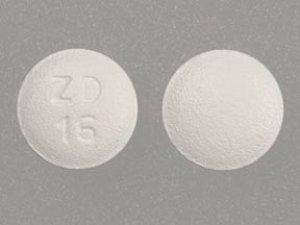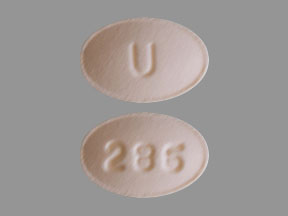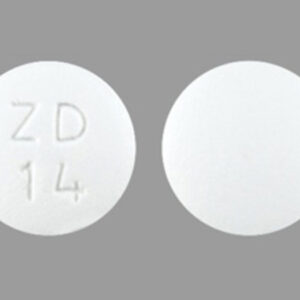Delivery Method: VIA EMAIL WITH READ RECEIPT Reference #: 320-25-73 Product: Drugs Recipient:
Recipient Title
Sales Director
Zhejiang Easyclean Daily Chemical Co., Ltd
501168, Dongrui 4th Road
Xintang Street
Xiaoshan Qu
Hangzhou Shi
Zhejiang Sheng, 311200
China
Issuing Office: Center for Drug Evaluation and Research (CDER)
United States
Warning Letter 320-25-73
May 14, 2025
Dear Mr. Hua:
Your facility is registered with the United States Food and Drug Administration (FDA) as a manufacturer of over-the-counter (OTC) drug products. FDA has reviewed the records you submitted in response to our March 11, 2024 request, and subsequent correspondence, for records and other information pursuant to section 704(a)(4) of the Federal Food, Drug, and Cosmetic Act (FD&C Act) for your facility, Zhejiang Easyclean Daily Chemical Co., Ltd, FEI 3016734050, at No. 501-168, Dongrui 4th Road, Xintang Street, Xiaoshan District, Hangzhou.
This warning letter summarizes significant violations of Current Good Manufacturing Practice (CGMP) regulations for finished pharmaceuticals. See Title 21 Code of Federal Regulations, parts 210 and 211 (21 CFR, parts 210 and 211).
Because your methods, facilities, or controls for manufacturing, processing, packing, or holding of drugs as described in your response to our 704(a)(4) request do not conform to CGMP, your drug products are adulterated within the meaning of section 501(a)(2)(B) of the Federal Food, Drug, and Cosmetic Act (FD&C Act) (21 U.S.C. 351(a)(2)(B)).
1. Your firm failed to have, for each batch of drug product, appropriate laboratory determination of satisfactory conformance to final specifications for the drug product, including the identity and strength of each active ingredient, prior to release (21 CFR 211.165(a)).
Your firm manufacturers over-the-counter (OTC) drug products, including (b)(4) with the FDA. Your response to our request for records and other information under section 704(a)(4) indicated that you did not conduct adequate finished drug product testing on drug products shipped to the United States (U.S.) market. Specifically, you indicated that you did not perform testing to verify the quantity of the active ingredients before release. Without adequate testing, there is no scientific evidence that your drug product batches conform to appropriate specifications prior to release.
In response to the letter, provide the following:
- A comprehensive assessment of your laboratory practices, procedures, methods, equipment, documentation, and analyst competencies. Based on this review, provide a detailed plan to remediate and evaluate the effectiveness of your laboratory system.
- A list of chemical and microbial specifications, including test methods, used to analyze each lot of your drug products before a lot disposition decision.
o An action plan and timelines for conducting full chemical and microbiological testing of retain samples to determine the quality of all batches of drug product distributed to the United States that are within expiry as of the date of this letter.
o A summary of all results obtained from testing retain samples from each batch. If such testing reveals substandard quality drug products, take rapid corrective actions, such as notifying customers and product recalls.
2. Your firm failed to establish an adequate written testing program designed to assess the stability characteristics of drug products and to use results of stability testing to determine appropriate storage conditions and expiration dates (21 CFR 211.166(a)).
Your firm failed to establish an adequate stability program and determine appropriate expiration dates for the OTC drug products that you manufacture. For example, you assigned a (b)(4) expiry date to your drug products. The records and information you provided for stability studies include only three months of accelerated stability data and did not include ongoing or long-term stability data, as required under 21 CFR 211.166(b). In addition, your stability data does not include testing for the active ingredient. Therefore, the data does not demonstrate that the drug’s active ingredient is stable throughout its shelf life.
In response to this letter, provide:
- A comprehensive assessment and corrective action and preventive action (CAPA) plan to ensure the adequacy of your stability program. Your remediated program should include, but not be limited to:
o Stability indicating methods.
o Stability studies for each drug product in its marketed container-closure system before distribution is permitted.
o An ongoing program in which representative batches of each product are added each year to the program to determine if the shelf-life claim remains valid.
o Detailed definition of the specific attributes to be tested at each station (timepoint). - All procedures that describe these and other elements of your remediated stability program.
3. Your firm failed to prepare batch production and control records with complete information relating to the production and control of each batch of drug product produced (21 CFR 211.188).
The batch records you provided lacked adequate production details, including but not limited to, product formulation, identity of major equipment, duration of execution of each significant step, and identification of person(s) performing each significant step in the drug manufacturing operation. Without adequate and complete batch records, you cannot assure the uniformity of your drug products from batch to batch. In addition, this may impact your ability to adequately investigate any product deviations and complaints.
In response to this letter, provide the following:
- A complete assessment of documentation systems used throughout your manufacturing and laboratory operations to determine where documentation practices are insufficient. Include a detailed CAPA plan that comprehensively remediates your firm’s documentation practices to ensure you retain attributable, legible, complete, original, accurate, contemporaneous records throughout your operation.
- Your master production and control records for your drug products, to demonstrate that they fully document each significant and validated manufacturing step.
4. Your firm failed to establish adequate written procedures for production and process control designed to assure that the drug products you manufacture have the identity, strength, quality, and purity they purport or are represented to possess (21 CFR 211.100(a)).
In your 704(a)(4) records request response, you indicated that no validation activities had been performed for your drug products, including (b)(4).
Process validation evaluates the soundness of design and state of control of a process throughout its lifecycle. Each significant stage of a manufacturing process must be designed appropriately and ensure the quality of raw material inputs, in-process materials, and finished drugs. Process qualification studies determine whether an initial state of control has been established. Successful process qualification studies are necessary before commercial distribution. Thereafter, ongoing vigilant oversight of process performance and product quality is necessary to ensure that you maintain a stable manufacturing operation throughout the product lifecycle.
See FDA’s guidance document Process Validation: General Principles and Practices for general principles and approaches that FDA considers appropriate elements of process validation, at https://www.fda.gov/media/71021/download.
In response to this letter, provide the following:
- A detailed summary of your validation program for ensuring a state of control throughout the product lifecycle, along with associated procedures. Describe your program for process performance qualification (PPQ), and ongoing monitoring of both intra-batch and inter-batch variation to ensure a continuing state of control.
- A timeline for performing PPQ for each of your marketed drug products.
- Process performance protocol(s), and written procedures for qualification of equipment and facilities.
- A detailed program for designing, validating, maintaining, controlling and monitoring each of your manufacturing processes that includes vigilant monitoring of intra-batch and inter-batch variation to ensure an ongoing state of control. Also, include your program for qualification of your equipment and facility.
CGMP Consultant Recommended
Based upon the nature of the violations we identified at your firm, you should engage a consultant qualified as set forth in 21 CFR 211.34 to evaluate your operations and to assist your firm in meeting CGMP requirements if your firm intends to continue manufacturing and shipping drugs for the U.S. market. The qualified consultant should also perform a comprehensive six-system audit of your entire operation for CGMP compliance and evaluate the completion and efficacy of your CAPA before you pursue resolution of your firm’s compliance status with FDA.
Your use of a consultant does not relieve your firm’s obligation to comply with CGMP. Your firm’s executive management remains responsible for resolving all deficiencies and systemic flaws to ensure ongoing CGMP compliance.
Conclusion
The violations cited in this letter are not intended to be an all-inclusive list of violations that exist at your facility. You are responsible for investigating and determining the causes of any violations and for preventing their recurrence or the occurrence of other violations.
Correct any violations promptly. FDA may withhold approval of new applications or supplements listing your firm as a drug manufacturer until any violations are completely addressed and we confirm your compliance with CGMP. We may inspect to verify that you have completed corrective actions to any violations.
Failure to address any violations may also result in the FDA refusing admission of articles manufactured at Zhejiang Easyclean Daily Co., Ltd, 501 168 Dongrui 4th Road, Xintang Street into the United States under section 801(a)(3) of the FD&C Act, 21 U.S.C. 381(a)(3). Articles under this authority that appear to be adulterated may be detained or refused admission, in that the methods and controls used in their manufacture do not appear to conform to CGMP within the meaning of section 501(a)(2)(B) of the FD&C Act, 21 U.S.C. 351(a)(2)(B).
This letter notifies you of our findings and provides you an opportunity to address the above deficiencies. After you receive this letter, respond to this office in writing within 15 working days. Specify what you have done to address any violations and to prevent their recurrence. In response to this letter, you may provide additional information for our consideration as we continue to assess your activities and practices. If you cannot complete corrective actions within 15 working days, state your reasons for delay and your schedule for completion.
Send your electronic reply to CDER-OC-OMQ-Communications@fda.hhs.gov. Identify your response with FEI 3016734050 and ATTN: Marva Taylor.
Sincerely,
/S/
Francis Godwin
Director
Office of Manufacturing Quality
Office of Compliance
Center for Drug Evaluation and Research
CC:
Zhanwei Li, Firm Contact
mt20121221@gmail.com








